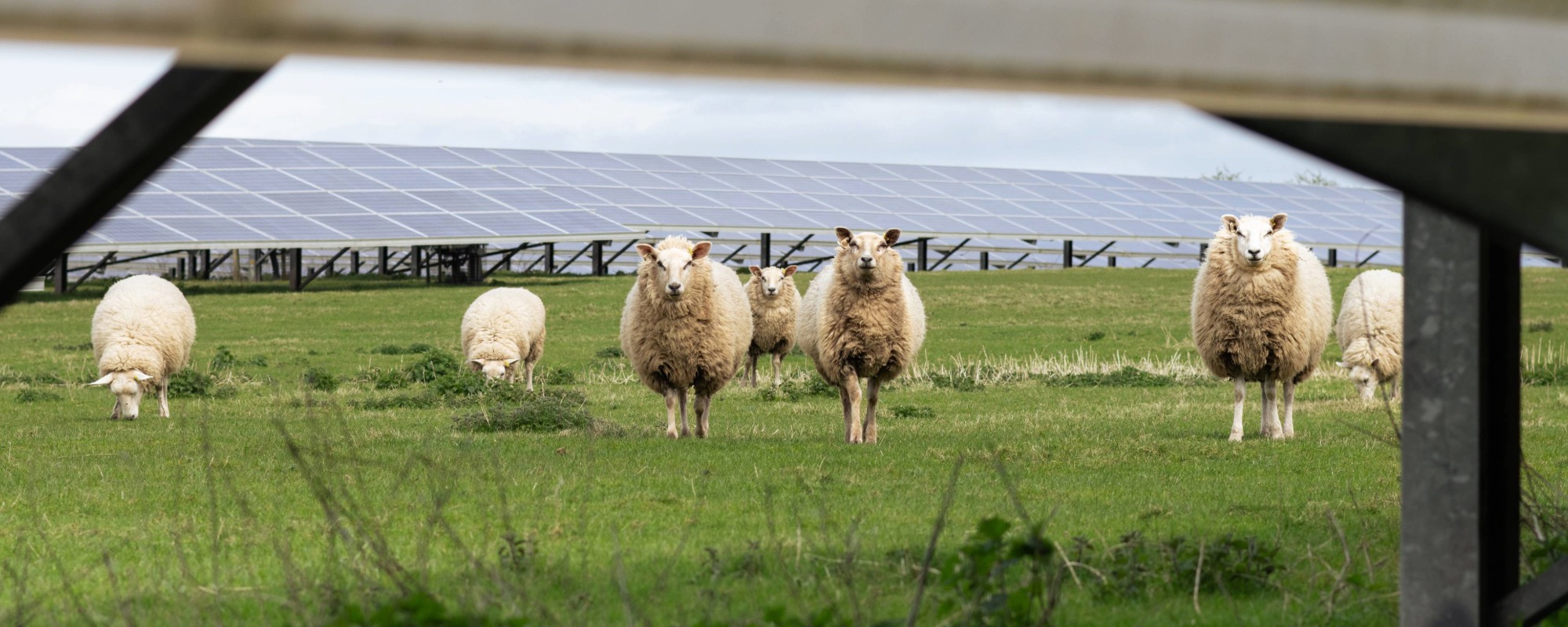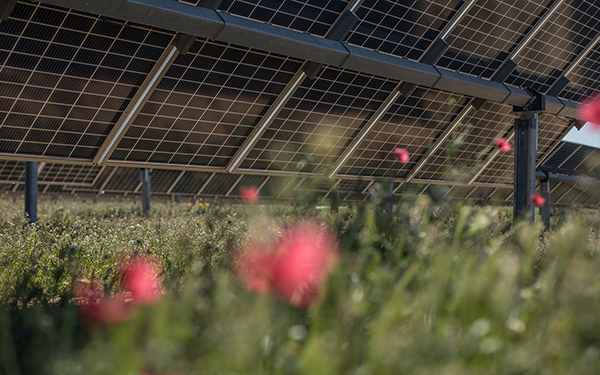Collective Virtual Power Purchase Agreements for low-energy businesses
Collective Virtual Power Purchase Agreements (Collective VPPAs) help low-volume energy businesses to unlock the benefits of predictable, large-scale renewable energy procurement.
Collective VPPAs offer a game-changing solution for companies with low energy consumption by aggregating their electricity demand. As a result, they get access to secure and stable electricity prices as they contribute to the roll out of more large-scale renewable projects.
As sustainability is key for growth strategies among industrial sectors globally, Collective VPPAs are emerging as a powerful, flexible and accessible tool for organisations committed to decarbonising their energy supply.
What is a Virtual PPA?
A Virtual Power Purchase Agreement (VPPA) is a financial contract between a renewable energy developer (the seller) and an energy consumer (the buyer).
Unlike a traditional, ‘physical’ PPA, where electricity flows directly from the renewable project to the buyer, a VPPA is a purely financial agreement. The renewable project sells its power to the wholesale electricity market, and the buyer continues to purchase electricity from their local utility.
To ensure a predictable revenue stream for the renewable project, the VPPA then sets a ‘strike price’ for the energy. If the market price is above the strike price, the developer pays the difference to the buyer. If the market price falls below the strike price, the buyer pays the difference to the developer.
Collective Virtual Power Purchase Agreements
A Collective VPPA takes this concept a step further by bringing multiple energy buyers together.
Instead of one heavy-energy corporation signing a single VPPA, a group of enterprises with lower energy requirements collectively commit to purchase the renewable energy from a renewable developer.
This aggregation of demand allows a wider pool of companies to get access to the benefits of renewable energy, decarbonising their operations as they boost their competitiveness.
This structure also enables further renewable developments and supports the energy transition.

Case study: The Fashion Pact
The Fashion Pact Collective Virtual Power Purchase Agreement is the biggest deal of its kind in the fashion industry, at the time of signing.
The CEO-led collective brought together 12 companies with different procurement needs to buy electricity from Lightsource bp renewable energy projects.
This innovative approach is a powerful example of an industry joining in a collective platform, to secure a decade of stable and predictable energy prices, while delivering on their sustainability goals.
Watch the video to find out more.
Who do Collective VPPAs benefit?
Collective VPPAs offer many benefits to organisations which otherwise wouldn’t have access to this kind of energy procurement.
Those most suitable may be organisations that:
- Have relatively small annual energy consumption and, individually, wouldn’t get access to large-scale renewable projects.
- Look to decarbonise their energy procurement at no upfront cost.
- Seek price stability and protect themselves against volatile electricity prices.
- Are committed to sustainability with ambitious renewable energy or net-zero targets.
5 key benefits of Collective Virtual PPAs
Collective VPPAs offer compelling advantages for both buyers and the broader renewable energy industry:
- Access to cost competitive renewable energy: Collective VPPAs enable a wider pool of organisations to purchase power from large-scale, cost-effective renewable energy projects that would otherwise be out of reach.
- Cost predictability: By locking in the electricity price, participants can gain long-term price certainty, hedging against volatile wholesale electricity prices and often achieving savings compared to traditional grid power.
- Environmental impact and ESG goals: Participants can deliver on their commitment to sustainability by directly supporting new renewable energy generation, helping them meet corporate Environmental, Social, and Governance (ESG) targets and reduce their carbon footprint.
- Cost and process optimisation: The aggregation model offers benefits in relation with the negotiation process and transaction costs, making it more manageable for buyers who lack extensive in-house expertise.
- Enhanced reputation: Associating with new, impactful renewable energy projects boosts a company’s green credentials and appeals to environmentally conscious customers, investors, and employees.
This collaborative approach to utility-scale renewable energy makes Collective Virtual Power Purchase Agreements not just a financial instrument. They are powerful enablers of the global energy transition, showing the power of industries working together to build a more secure, affordable and sustainable future.
Our available projects

Power your business on renewable energy
Lightsource bp provides utilities, businesses and governments opportunities to procure renewable power with no up-front capital investment.




